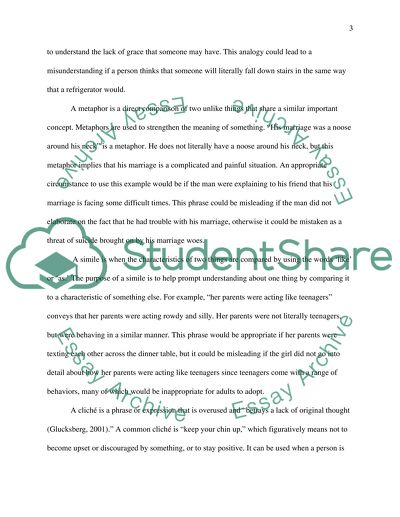Figurative Language versus Literal Language Essay. Retrieved from https://studentshare.org/sociology/1434473-figurative-language-versus-literal-language
Figurative Language Versus Literal Language Essay. https://studentshare.org/sociology/1434473-figurative-language-versus-literal-language.


